Our EYFS
Welcome to Early Years!
Welcome to Newbury Park Primary School's Early Years Setting, where the foundations for lifelong learning are built with care, creativity, and dedication. Our vibrant and nurturing environment is designed to ignite curiosity and foster a love for learning in children from the very beginning. At Newbury Park Primary School, we believe that every child is unique, and our tailored approach ensures that each young learner thrives academically, socially, and emotionally. Join us on this exciting journey where play, exploration, and discovery pave the way for future success.
Here you can find out about our daily routines, and important events and see what our early years is all about, first take a virtual look around:
EYFS - Made with Clipchamp_1710367091517.mp4
At Newbury Park Primary School we are proud of our Early Years Foundation Stage and love coming to school to learn. We hope you enjoy finding out about our Nursery and Reception classes and seeing all of the learning we are doing.
We plan and deliver learning opportunities using the EYFS Framework. This covers the seven areas of learning and development:

Click here for our Early Years Policy:
Click here for the EYFS Framework:
EYFS Team:
EYFS Lead: Mrs. C Rogers (AHT)
Nursery - Mrs S Adam
Year Group Leader Reception Red - Mrs. C Alexander
Reception Yellow - Ms L Brooks
Reception Green - Miss A Adam
Reception Blue - Mrs A Bhogal
EYFS Curriculum: Please see our Reception and Nursery pages for our curriculum.
Stay and Play the Newbury Way
Every Thursday in reception (half-termly in nursery), we extend a warm invitation to families to join us in the classroom from 2:55 pm to 3:25 pm These sessions provide a wonderful opportunity for you to witness the magic of reading and phonics instruction at Newbury Park Primary. You'll gain valuable insights and tools to support your child's learning at home, while also enjoying the chance to read with your child and seek guidance from our dedicated staff.
What to Expect:
-
Phonics Lessons: Participate in a short phonics lesson covering the sounds learned the previous week.
-
Read for Pleasure: Enjoy a Read for Pleasure session with your child.
-
Creative Activities: Occasionally, take part in creative "Make and Do" sessions.
We look forward to welcoming you into the classroom and sharing these special moments of learning and fun with you and your child. Join Us for Stay and Play Sessions every week!
How to support your child at home:
At Newbury Park Primary School, we believe that learning doesn’t stop when the school day ends. Families play a vital role in their child’s educational journey. Here are some practical tips and activities to help you support your child’s learning at home:
1. Create a Learning-Friendly Environment
- Dedicated Space: Set up a quiet, comfortable area for your child to read, draw, and complete school activities.
- Materials: Provide age-appropriate books, art supplies, and educational toys to encourage exploration and creativity.
2. Encourage Reading
- Daily Reading: Read with your child every day. This helps build vocabulary, comprehension, and a love for books.
- Library Visits: Make regular trips to the library to choose new books together.
- Storytime: Create a routine that includes storytelling or reading before bedtime to spark imagination and a real love for reading.
3. Engage in Play-Based Learning
- Educational Games: Use games and puzzles that promote counting, letter recognition, and problem-solving.
- Role-Playing: Encourage imaginative play with dress-up clothes, toy kitchens, tool stations or shops to develop social and language skills.
- Outdoor Play: Spend time outdoors exploring nature, which can be a great way to learn about the environment.
4. Practise Everyday Maths
- Counting: Count objects around the house, like toys, steps, or fruit in a bowl.
- Sorting: Sort household items by colour, size, or shape to develop classification skills.
- Cooking: Involve your child in cooking to practise measuring, following instructions, and understanding quantities.
5. Develop Writing Skills
- Drawing and Colouring: Provide plenty of paper, crayons, and markers for drawing and colouring.
- Writing Practice: Encourage writing letters, numbers, or simple words. Writing shopping lists or notes can be a fun way to practise.
- Labelling: Label items around the house with sticky notes to help your child recognise words and their meanings.
6. Foster a Love for Learning
- Curiosity: Encourage your child to ask questions and explore topics of interest. Speak with them about the world around them. Visits different cultural places, museums and parks.
- Praise Efforts: Focus on effort and persistence rather than just the results. Celebrate their successes and support them through challenges.
- Model Learning: Show enthusiasm for learning by reading books, solving puzzles, or exploring new hobbies together.
7. Maintain a Routine
- Consistent Schedule: Establish a daily routine that includes time for learning, play, and rest.
- Balance: Ensure a balance of structured activities and free play to keep your child engaged and happy.
8. Communicate with Teachers
- Stay Informed: Keep in touch with your child’s teachers to stay informed about their progress and any areas that need extra attention.
- Support: Work together with educators to provide consistent support and reinforcement of what is being taught at school.
EYFS Website Links
- Meet the Numberblocks: Can you count the Number Blobs? FREE
- Numberblocks: Hide and Seek: Find and add the Numberblocks!
- Numberblocks: Card Fun!: Learn with the Numberblocks!
- Alphablocks: Letter Fun: Learn to read with phonics
- Topmarks https://www.topmarks.co.uk/maths-games/3-5-years
- Phonics play https://www.phonicsplay.co.uk/

